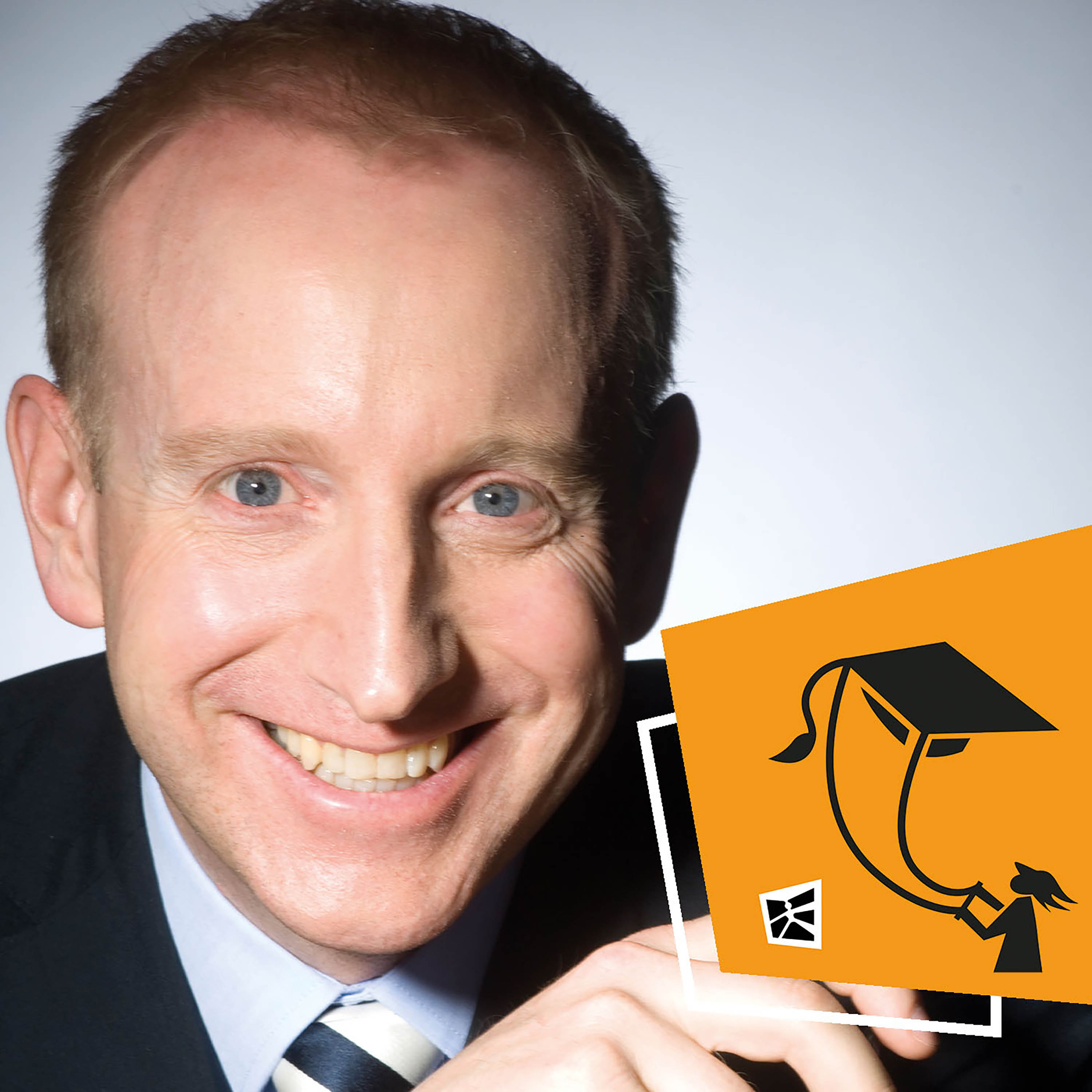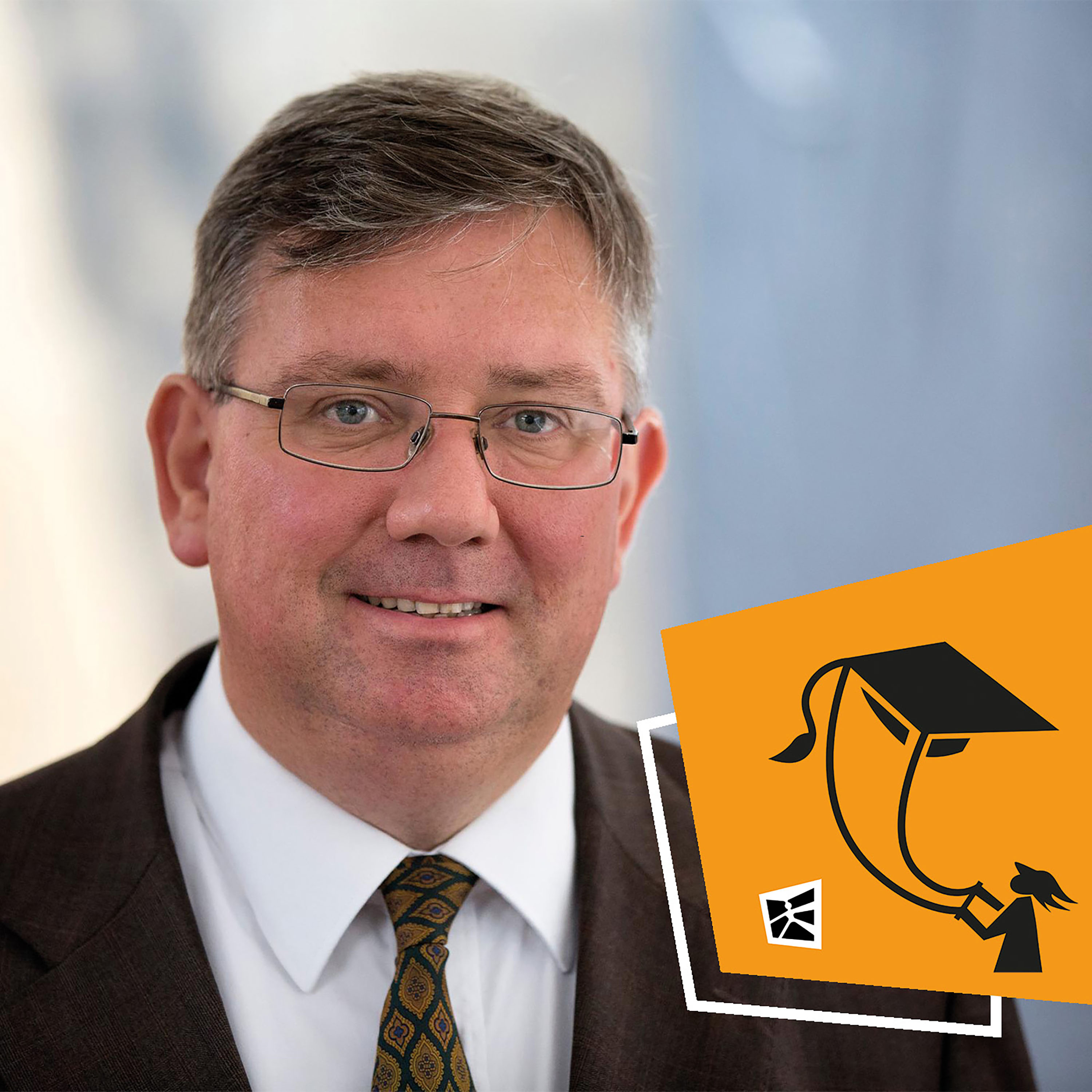Background - 15.12.2023 - 09:00
WTO hosts HSG class in Geneva on Trade and Peace
Under the leadership of Prof. Simon Evenett, fifteen HSG students presented ideas to the World Trade Organization focused on encouraging global peace through international trade.

On 5. December 2023, students from the University of St.Gallen gave their insights into how trade affects inter-state conflict and within-nation social unrest, violence, and civil wars. The World Trade Organization’s (WTO) Accessions Division, in collaboration with the WTO’s Division for Knowledge and Information Management hosted the class and provided expert comment.
The 18th century philosopher Montesquieu wrote that “wherever the ways of man are gentle, there is commerce… and the natural effect of commerce leads to peace.” This is a guiding principle of the WTO’s Trade for Peace Programme.
Trade for Peace Programme
The programme strives to assist countries in transitioning from fragility and conflict to stability and economic well-being. It seeks to achieve this through political engagement and partnerships, outreach and public dialogue, research, and training and capacity building. As a part of the public dialogue and research focus, the day’s events saw students analyse the relationship between trade and peace and they presented specific concrete examples of how trade can and does promote stability.
Mr Mustapha Sadni Jallab, WTO head of the Knowledge Management Section and Patrick Low, the former WTO chief economist were joined by WTO representatives including Lise Prum, Brock Burton, Alexandre Marchand, Muhanna Al Lawati, Harouna Traore. André Brotto and Fernando Martin from the St.Gallen Endowment from Prosperity Through Trade supported the HSG students with tutorials before the WTO presentations and were present as well.
Mustapha Sadni Jallab said that engagement with students allows to get their perspective on how trade can promote global well-being and peace. Indeed, he noted that he appreciates the way that the students and academics in general approach intricate topics with a different evidence-based approach. “Students and academics bring new, fresh perspectives to issues that can help us to see things in a different angle,” he said.
Trade and Conflict
The presentations by the students were based on papers written in a course by Simon Evenett and it was the first time this course was offered by HSG. It had the goal of exposing students to the many ways in which trade, peace, and conflict are related. “Geopolitics adds a level of complexity to the trade-peace nexus. The goal of this class was to get students to grapple with the many factors driving trade and conflict in the context of a case study of their choosing.”
Some of the presentations included an in-depth look at Georgia’s trade relationship by Ieva Laila Kalnina before and after the Russian invasion of Georgia in 2008. She argued that Georgia’s dependency on Russia and attempt to diversify its trading partners may have contributed towards Russia’s decision to invade.
Looking at Trade & Peace in South Africa, student Saori Grignoli demonstrated that trade sanctions had a positive effect on ending Apartheid and that the data showed that there was an increase in both imports and exports after ending it in the 1990s. She said, “through my involvement in this international trade project, I came to appreciate the profound impact that commerce can wield in fostering a more peaceful world.”
Former WTO Chief Economist Patrick Low, who provided valuable feedback to the students, said that “the relationship between trade and peace is complex, as demonstrated by the various case studies prepared by the students. Such research is essential for giving us a better understanding of interlinkages within the trade-peace nexus, which can ultimately inform trade policy choices.”
Christoffer Platou Bjørnsen whose previous experience working for a development finance institution focused on investments in Sub-Saharan Africa, looked at East African nations and how trade agreements has had an effect on Tanzania and Uganda. He found that regional trade agreements and integration played a role in de escalating conflict and promoting peace in East Africa. “Normally students write a paper for a course. In Prof. Evenett’s class, we knew that we would have this opportunity to present to the WTO… This gave our work more meaning.”
Appearance of WTO Deputy Director-General
As a surprise to the participants, Deputy Director-General Johanna Hill joined the group and spoke on the importance of the vision of the Trade for Peace Programme and the research undertaken by the HSG students: “Following the Salvadoran Civil War, the Uruguay Round agreements became an essential part of El Salvador's post-conflict reconstruction plan and the economic integration of Central America. This is anecdotal evidence based on my own experience, but policy needs to be based on research, which you are contributing to through your work.”
Image: Workgroup in Geneva
Disclaimer: The presentations and case studies developed by students from the University of St. Gallen are not associated with the membership of the WTO, nor do they reflect the rights or obligations of WTO Members. The research, positions, and opinions expressed by students from the University of St. Gallen in this course and associated events are solely their own and do not reflect the official positions of the WTO staff, its Members, or the WTO Secretariat.
More articles from the same category
This could also be of interest to you
Discover our special topics


![[Translate to English:] Choix Goncourt de la Suisse | unisg.ch](https://www.unisg.ch/fileadmin/_processed_/b/a/csm_Choix_Concourt_de_la_Suisse_HT-Stibi-069_2110740678.jpg)













